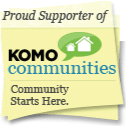There is a lot of confusion surrounding a person’s rights when he or she protests or joins a demonstration. For your protest to be as safe and effective as possible, you need to understand your rights and all the legal restrictions that apply to how you express what you are feeling, the nature of your speech and where you decide to make your voice heard. If you have been charged criminally in connection with a protest or demonstration, it’s also important to contact a criminal defense law firm to discuss your case.
Location Restriction Considerations
In general terms, you are allowed to express your views in public spaces, such as streets, parks and other areas that are regularly accessed by the public. However, you can’t protest or demonstrate on private property that doesn’t belong to you unless you have explicit permission from the owner.
Although you are allowed to hold a protest in most public spaces, you may need a permit to do so, depending on where you will be and what you plan to do. This is usually true for larger-scale protests such as parades, rallies or marches that will probably inhibit the ability of traffic to flow, and also any event where you will be using megaphones, microphones and other types of loudspeakers. In addition, in Seattle and some of its surrounding areas, you may need a special event permit if you want to protest in a public park or any other area that requires a roadblock or the stopping of traffic.
Restrictions on Your Speech
Broadly speaking, law enforcement cannot punish you or discriminate against you because you are freely expressing your views. However, keep in mind that some speech forms are not protected under the First Amendment, and engaging in them may result in your protest being shut down. These forms of speech include:
- Anything you say or do that is encouraging lawlessness or violent actions
- Speech that is considered very obscene and would definitely be offensive to the average person
- Words that are threatening another group or person with death or physical injury.
If you feel you are being discriminated against by law enforcement because of your speech’s content and not because of inappropriate delivery, it is imperative that you speak to a criminal defense law firm as soon as possible. Charges related to a protest can involve jail time and fines, and if the police have behaved inappropriately, you have the right to defend yourself.
As a protester, your rights may have been violated by law enforcement if any of the following statements apply to your case:
- The police have allowed a different group to speak completely freely and in a similar way as you did but are taking action only against your demonstration
- You were asked by police not to hand out flyers, books, pamphlets or other literature that falls under constitutional protection
- You were searched by police without your consent, and you were not in a situation where this action was legal
- Despite not having a warrant, police demanded that you show them videos or photos you took
- The police tried to end your protest but you had all the permits required and you met all manner, place and time restrictions that applied
The most common charges that protesters in Washington face are disorderly conduct, obstruction, , resisting arrest, trespassing, or disturbing activity nearby, such as at a school by the protest site.
If you are arrested for anything related to your participation in a protest, remember that you have the right to stay silent. You do have to give your name and address, but you don’t have to say anything else. You also have the right to an attorney and should ask for one right away. Don’t discuss the case with the police without an attorney present; what you say can be used against you later. You also have the right to go to court and go before a judge the next day that court is in session. Make sure you assert this right. Depending on your situation, you may be released with or without posting bail before you see the judge.






